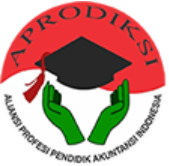GAMING MEETS ACCOUNTING: AN INSIGHTFUL JOURNEY THROUGH DORAEMON STORY OF SEASON
DOI:
https://doi.org/10.21831/jpai.v22i1.72139Abstract
This research explores the educational potential of Doraemon Story of Seasons, a game that blends the charm of the Doraemon series with engaging farming simulation mechanics. The study adopts an ethnographic approach, focusing on participant observation to analyze how the game implicitly teaches fundamental accounting principles. The purpose of this research is to investigate the game's capacity to transform traditional gameplay into an interactive learning environment. Through managing resources, making financial decisions, and engaging in-game economic activities, players interact with core concepts of accounting, such as budgeting investment, and financial tracking. Findings indicate that Doraemon Story of Seasons effectively integrates educational content within its gameplay, providing players with practical experience in financial management and decision-making. The novelty of the study lies in its demonstration of how seemingly conventional video games can serve as an innovative educational tool. This research underscores the transformative potential of game-based learning, suggesting that video games like Doraemon Story of Seasons can be potent platforms for delivering educational content, thus redefining the landscape of learning methodologies. The study opens avenues for further exploration into the use of video games as a viable and effective medium for education.
Keywords: Education, Accounting Education, Gamification, Game based Learning, Gaming Accounting
Downloads
Published
How to Cite
Issue
Section
License
Authors who publish with Jurnal Pendidikan Akuntansi Indonesia journal agree to the following terms:
- Authors retain copyright and grant the Jurnal Pendidikan Akuntansi Indonesia journal right of first publication with the work simultaneously licensed under Creative Commons Attribution License (CC BY 4.0) that allows others to share the work with an acknowledgment of the work's authorship and initial publication in this journal.
- Authors can enter into separate, additional contractual arrangements for the non-exclusive distribution of the published version of the work (e.g., post it to an institutional repository or edit it in a book), with an acknowledgment of its initial publication in this journal.
- Authors are permitted and encouraged to post their work online (e.g., in institutional repositories or on their website) before and during the submission process, as it can lead to productive exchanges, as well as earlier and greater citation of published work.






